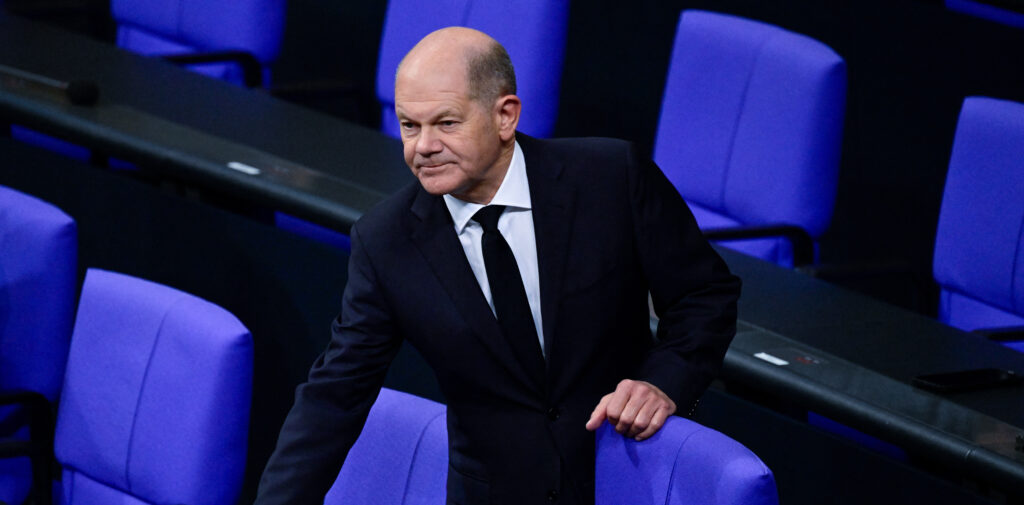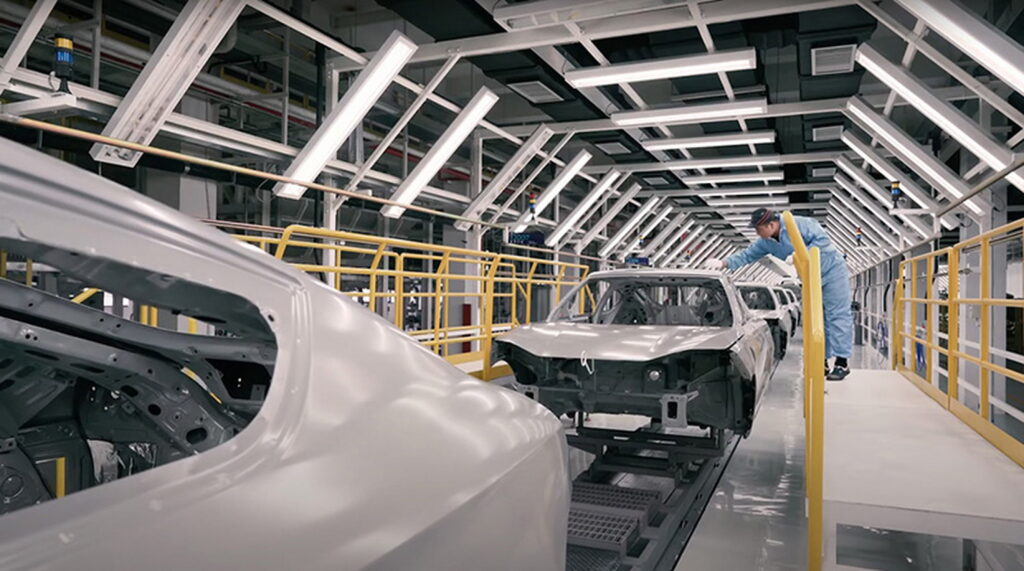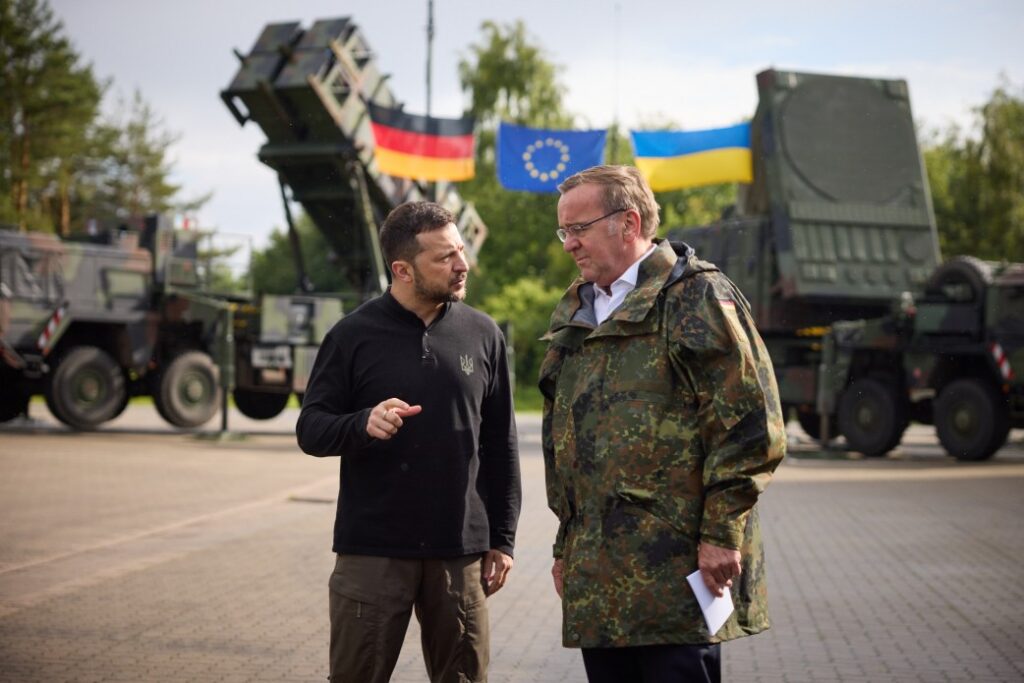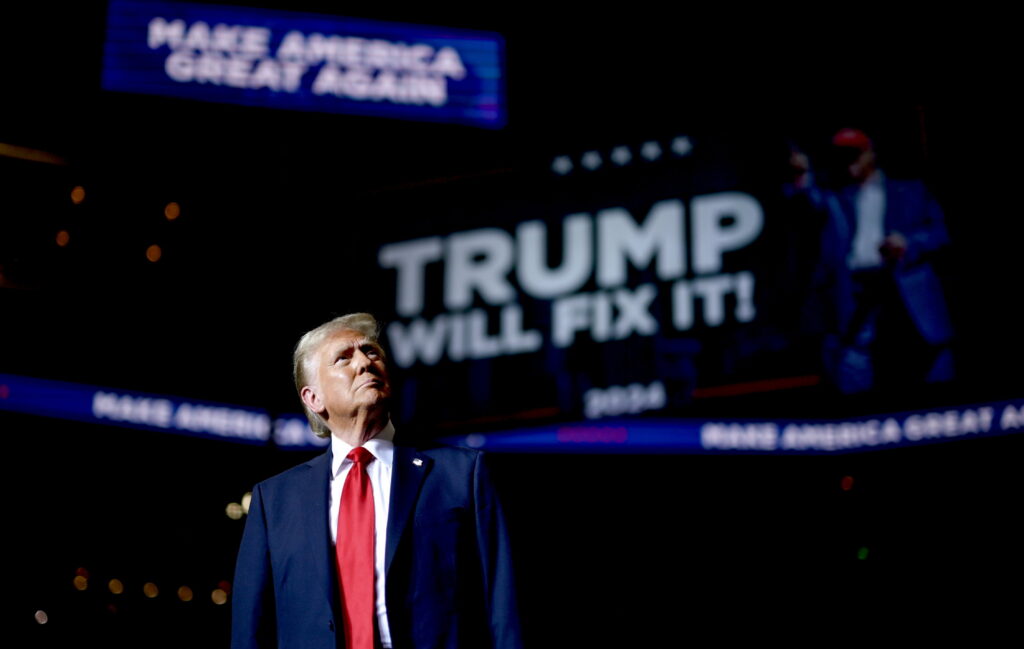Brussels – Yesterday, Germans voted to renew the Bundestag, the lower house of parliament. As polls predicted, the Christian Democratic Union (CDU/CSU) of Friedrich Merz won and will thus be the next federal chancellor. He will face, among other things, the arduous task of reviving the fortunes of the largest economy on the Old Continent and the equally difficult task of helping Brussels find a balance with the White House of Donald Trump.
Towards a new government
In Berlin, the new executive should be a grand coalition (Große Koalition) between the Christian Democrats of the Union and the Social Democrats of the SPD. Friedrich Merz led the first group, while outgoing chancellor Olaf Scholz led the second group in the elections (where they achieved their worst result in history). Barring an eventual recount of the votes that changes the outcome for the votes of the red-Brown BSW coalition led by Sahra Wagenknecht (which the first official results give at 4.97 percent, just 0.03 percentage points below the 5 percent threshold), the parliamentary seats of the two main centrist parties will be sufficient to give rise to a Red-Black alliance.
If that is not enough, a third partner might be necessary: the Greens left an orphan by Robert Habeck, their chancellor candidate who resigned just this morning (Feb. 24) after the disappointing result in the polls, would be the main prospect even though the leader of the CSU (the sister party of the CDU active in Bavaria), Markus Söder, has already closed the door to their inclusion in the majority.

Barring surprises, however, the work of the Merz government will focus on several key priorities, among which managing migration flows, economic recovery, and a rethinking of the national defense strategy stand out. It is precisely because of the urgency of the challenges he will face that the leader of the CDU hoped that negotiations for the formation of the government would proceed quickly. “The world is not waiting for us, nor is it waiting for lengthy talks and coalition negotiations,” he said, adding that strong leadership must be given to Berlin as soon as possible “so that we are once again present in Europe and let the world perceive that Germany is reliably governed.”
Crackdown on immigration
The issue of undocumented immigration was crucial in the election campaign, mainly due to a series of deadly attacks that have occurred in the country in recent months and Merz’s political gamble seeking the support of the AfD to get the Bundestag to crack down on asylum policies. “We will do everything we can to organize a change of direction in Germany,” Söder announced.
Given that even the positions of the Social Democrats have become more rigid recently, it should not be an insurmountable problem for the new chancellor to be able to approve a clampdown on illegal immigration. However, over the future of the red-black coalition, the sword of Damocles of far-right support could continue to hover, which the Spd should be categorical in rejecting, unlike the potential partners of the Union.
Economy and Budget
Another major problem that Merz faces is what many observers consider the most serious economic crisis the country has ever faced since reunification in 1990. The primary factor dragging industrial production toward the brink is the free fall of the automotive sector, once the flagship of an export-based business model.

However, economists have little hope for a drastic restructuring of the German economy by the red-black coalition. At most, some observers believe that some fiscal retrenchment is possible. Moreover, one of the points of disagreement between the CDU and SPD is the reform of the so-called debt brake. This constitutional provision prevents governments from spending more resources than entering state coffers.
Changing this provision requires a two-thirds majority in the Bundestag: even imagining that the red-black alliance is united and finds support from the Grünen, it would have to convince the Linke (64 seats) since the AfD is hostile to revising the brake. The Left might prove willing, especially if Merz pledges to invest a more significant portion of GDP on social and environmental issues, but might be less open to increasing public spending on defense.
Defense and Security
The security sector will be another critical test for the new chancellor. Merz explicitly said he intended to renovate the federal army — the Bundeswehr — and enhance the German defense industrial base. However, doing so will require substantial financial resources. Help could come from Brussels, where there is talk of activating the safeguard clause of the Stability and Growth Pact (SGP)and loosening community budget constraints for defense investment.
The leader of the CDU has repeatedly stressed the need to rethink the security architecture on the Old Continent in a historical phase that could see Washington’s disengagement. “We need to prepare for the possibility that Donald Trump will no longer unconditionally fulfill the NATO mutual defense commitment,” he said on the eve of the election.
Merz even went so far as to float the idea of a new defense alliance in Europe, which could stand as an alternative to the North Atlantic Alliance. Referring to the summit scheduled for next June, he said he did not know whether, on that occasion, “we will still talk about NATO in its current form or whether we will have to establish much more quickly an independent European defense capability.” Within this framework, Berlin would like to discuss nuclear cooperation with London and Paris, extending the UK’s and France’s atomic umbrella to Germany as well.

As for the defense budget, Merz would like to reach the target of 2 percent of GDP set by the alliance after meeting it for the first time in 2024. As of today, reaching that level would require about thirty billion euros a year, which could come from the 100 billion monster fund introduced by Scholz in the aftermath of Russia’s large-scale invasion of Ukraine.
Merz has hinted that he wants to go even further, stressing that the 2 percent is a minimum, not a ceiling. Should Boris Pistorius, the outgoing SPD defense minister (and the politician with the highest individual approval rating nationwide), remain in the next executive, getting the Bundestag to agree on this may be easier.
Transatlantic relations (and Ukraine)
Military spending increases in the 27 member states are a direct consequence of the Russian aggression on the former Soviet republic, launched precisely three years ago (an anniversary that EU leaders commemorated with a joint visit in Kyiv). Although Germany has been the second-largest funder of Ukrainian resistance after the United States, Scholz’s approach to supporting Kyiv’s war effort has faced criticism for being excessively cold. In a change of pace, Merz could agree to supply Taurus long-range missiles, the German version of the US-made Patriot that the Social Democratic chancellor never decided to send to Kyiv.
After all, Trump’s return to the White House has rebalanced the US stance on the conflict, shaking the overall foundations of transatlantic relations. Merz left no doubts regarding his reading of the latest developments, which are challenging the international order that Western allies introduced in 1945.
According to Merz, Brussels should find a common position on the ongoing negotiations between Washington and Moscow since “it is clear that the Americans, at least this part of the Americans, this administration, are largely indifferent to the fate of Europe.” “My absolute priority will be to strengthen Europe as quickly as possible so that, step by step, we can really achieve independence from the USA.”

An argument reminiscent of the concept of “strategic autonomy” repeatedly advocated by Emmanuel Macron. However, the transalpine leader is severely (perhaps fatally) weakened domestically, and in recent years, the Franco-German engine has also stalled due to internal conflicts within Berlin’s “traffic-light coalition.” Merz now appears intent on retaking the leadership position in the EU that Angela Merkel held during her long chancellorship. For the first time in 80 years, however, it may be a leadership that will have to do without Uncle Sam and his formidable strategic deterrent.
Regarding the interference in the German election campaign by Trump’s right-hand man, techno-oligarch Elon Musk (the world’s richest man publicly praised the AfD’s chancellor candidate, Alice Weidel) and White House number two, James David Vance (who urged European leaders to abandon the “cordons sanitaire” against the far right), Merz said he was “under no illusions,” calling the US interventions “dramatic,” “drastic,” and “outrageous.”
Reactions to the election
As expected, Musk’s comment regarding the historic achievement of the post-Nazi ultra-right was jubilant: “At this rate of growth, the AfD will be the majority party by the next election,” he wrote on the X platform (which he owns), echoing the congratulations extended to Weidel by Hungarian Prime Minister Viktor Orbán.
Several other key figures in global ultranationalism also rejoiced for the AfD’s performance, starting with Musk’s boss, Trump. “Just like the United States, the German people have grown tired of the common-sense agenda, especially on energy and immigration, that has prevailed for many years,” he wrote on his social Truth.
“Change wins in Germany, too!” said Italian deputy prime minister Matteo Salvini. The leader of Austria’s far-right FPO, Herbert Kickl, rejoiced at what he described as a “huge hole” in the “cordon sanitaire” erected in Germany to keep the AfD out of power. Salvini and Kickl are allies in Europe in the Patriots group, where it is rumored Weidel’s formation might re-enter after being expelled by the Le Penist of Rassemblement National.
Change wins in Germany too! @AfD doubles votes, despite attacks and lies from the left: stop illegal immigration and Islamic fanaticism, no more eco-follies, priority to peace and work, Europe to be radically changed.
Brava @Alice_Weidel, avanti… pic.twitter.com/aO0UfFdcce– Matteo Salvini (@matteosalvinimi) February 23, 2025
A large number of world leaders congratulated Merz. Macron said that he and the leader of the CDU are “more determined than ever to do great things together for France and Germany and to work for a strong and sovereign Europe.” Ukrainian President Volodymyr Zelensky reiterated that “Europe needs shared successes,” which will bring it “even greater unity” to make it able “to defend itself, develop its industries, and get the results it needs.”
Israeli Prime Minister Benjamin Netanyahu said he is ready to “further strengthen the partnership” between Berlin and Tel Aviv. In response, the future chancellor invited him to visit Germany, pledging to find a way to address the “scandalous” ruling of the International Criminal Court, which last November issued an arrest warrant for the leader of the Jewish state for war crimes and crimes against humanity.
English version by the Translation Service of Withub







